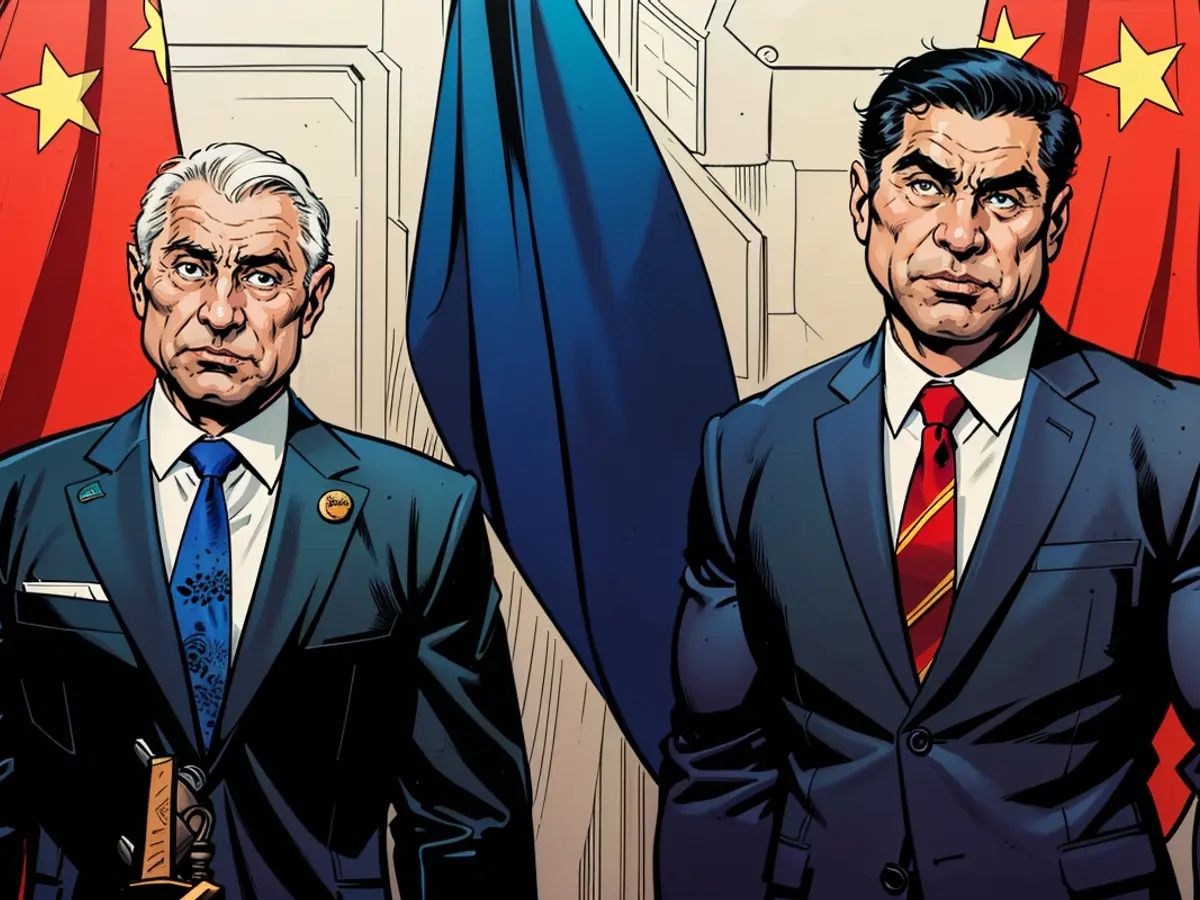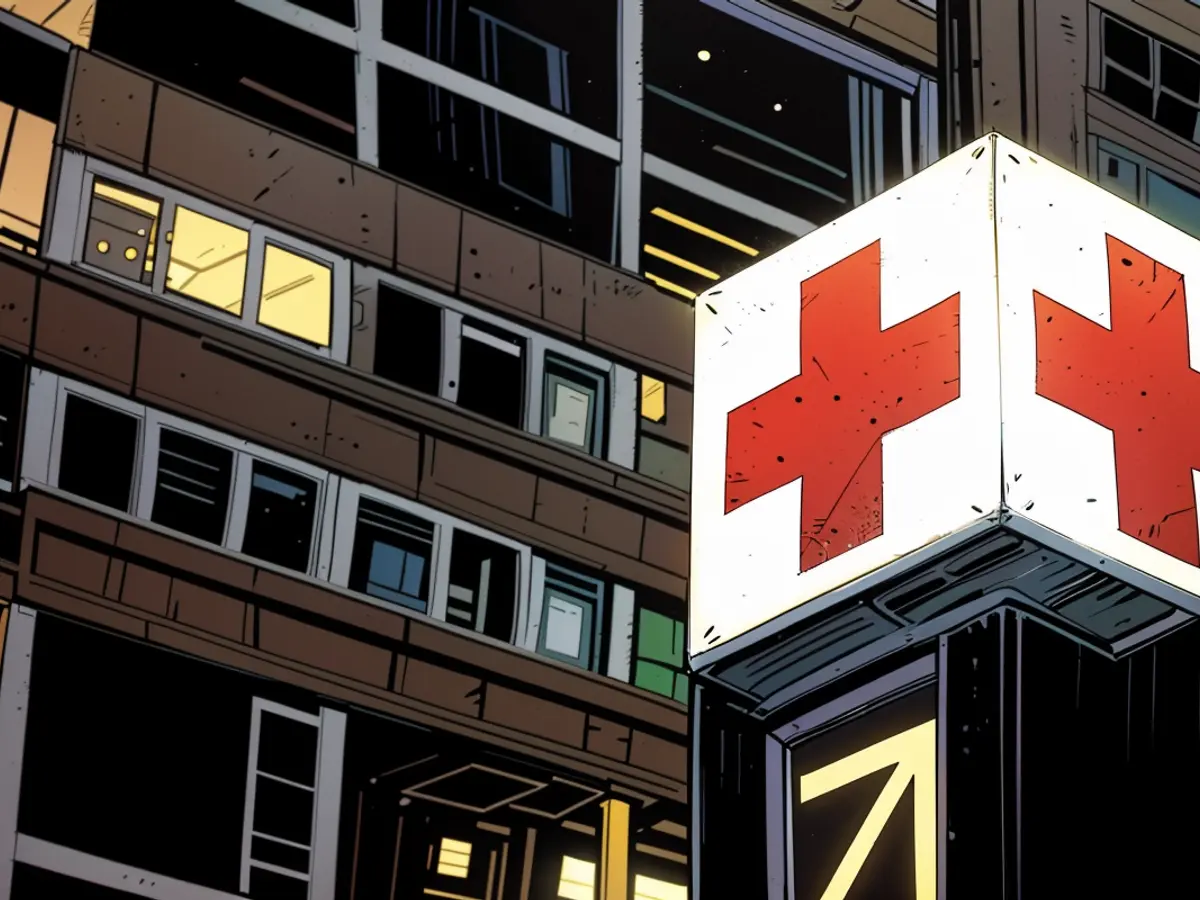Fresh American sanctions affect Russia and China.
Before the G7 meeting in Italy, the US has introduced a new set of sanctions targeting Russia and its supporters. This is not just old news, according to US officials, whose aim is to further weaken Moscow's military capabilities and make it harder for them to access essential resources and funds. This time, Chinese companies are also affected by these measures.
The G7 countries - the United States, Canada, Japan, Great Britain, France, Germany, and Italy - are discussing these sanctions during their three-day gathering in Apulia. Other topics on the agenda include the situation in Ukraine and Gaza, trade issues with China, and migration. Ukraine's President Volodymyr Zelenskyy and Pope Francis are among the attendees.
The US has already imposed unprecedented sanctions on Russia due to its attack on Ukraine more than two years ago. With the new sanctions, it aims to make it even more challenging for Russia to obtain critical items for the battlefield. The latest package targets over 300 people and institutions, including banks, networks, companies, and other targets in Russia and countries such as China, Turkey, and the United Arab Emirates. US Treasury Secretary Janet Yellen explained that the penalties are aimed at Russia's remaining procurement channels and crucial supplies from third countries.
The US Treasury and State Departments identified numerous entities involved in three LNG projects, the Moscow Stock Exchange, and several subsidiaries, complicating transactions worth billions. Yellen stated that the US is raising the stakes for financial institutions involved in Russia's war economy, closing off loopholes, and limiting Russia's access to foreign technology, equipment, software, and IT services.
Russia, in turn, has declared it will not leave these actions unanswered. Foreign Ministry spokeswoman Maria Zakharova told state news agency TASS that Moscow will respond to the new wave of US sanctions. The Moscow Stock Exchange announced it would no longer trade in dollars and euros.
The G7 summit could bring significant support for Ukraine, with President Zelenskyy taking part in one of the working sessions. It is expected that the group will commit to providing Ukraine with as much help as possible, estimated to be around $50 billion (or roughly 47 billion euros). This aid package would be funded through a credit package created by the frozen Russian state assets' interest. The funds could help Ukraine bolster its defenses and finance the reconstruction of damaged infrastructure. A EU official said on Tuesday.
Ukraine received commitments worth 1 billion euros in January and February, and an additional 1 billion euros in March alone. The EU had decided earlier to use interest on frozen Russian central bank assets to finance military aid for Ukraine. This year's potential earnings could reach up to 3 billion euros. The credit lever could further increase the impact, with 210 billion euros of Russia's central bank assets frozen in the EU. Euroclear, a financial institution in Brussels entrusted with storing Russian central bank assets, earned 4.4 billion euros in interest.
According to a media report, President Biden has decided to provide Ukraine with another Patriot air defense system. This would be the second such system the US has provided to Ukraine. US White House communications director John Kirby confirmed the report. The new Patriot air defense system is currently in Poland and could be deployed at the Ukrainian front in the coming days.
These steps mark a significant escalation in the ongoing conflict between Russia and Ukraine, with both sides vowing retaliation against each other. The hope is that these actions will pressure Russia to end its invasion of Ukraine.
Italian Prime Minister Giorgia Meloni playfully welcomes her esteemed visitors to the sumptuous retreat "Borgo Egnazia," adorned with 28 villas and 63 suites or rooms, each exuding the glorious Apulian charm. The grounds further consist of über-classy restaurants, lush pools, a pristine golf course, and a lavish beach club. Remarkably, Francis, the pope himself, is set to engage with world leaders at this exclusive locale. The agenda for their in-depth discourse encompasses not only AI but also Africa and the Mediterranean. Throughout their discussion, the pontiff meticulously reiterates the importance of empathy towards displaced refugees and migrants daring to embark on an unpredictable voyage to the European shores.
Intriguingly, the blasting years of the G7 summit collide with the previous two-day Ukrainian rehabilitation conference in Berlin. Scholz, also present during these talks, will tag along with Zelenskiy to the forthcoming Ukraine peace conference in Switzerland, where an impressive roster of approximately 40 US presidents and prime ministers are anticipated to participate. Out of 160 initial invitations, around 40 leaders have confirmed their attendance as of now with the possibility of a spike in number as a plethora of additional high-ranking government officials are due to join in the day afterwards.








